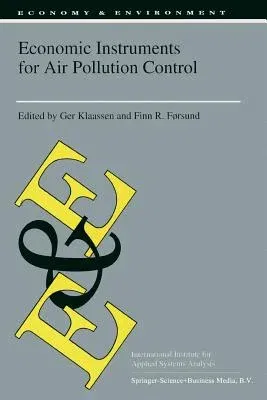Economic Instruments for Air Pollution Control (Softcover Reprint of the Original 1st 1994)Paperback - Softcover Reprint of the Original 1st 1994, 5 November 2012

Qty
1
Turbo
Ships in 2 - 3 days
In Stock
Free Delivery
Cash on Delivery
15 Days
Free Returns
Secure Checkout
Part of Series
Economy & Environment
Print Length
283 pages
Language
English
Publisher
Springer
Date Published
5 Nov 2012
ISBN-10
9401044406
ISBN-13
9789401044400
Description
Product Details
Book Edition:
Softcover Reprint of the Original 1st 1994
Book Format:
Paperback
Country of Origin:
NL
Date Published:
5 November 2012
Dimensions:
23.39 x
15.6 x
1.65 cm
ISBN-10:
9401044406
ISBN-13:
9789401044400
Language:
English
Location:
Dordrecht
Pages:
283
Publisher:
Series:
Weight:
435.45 gm

